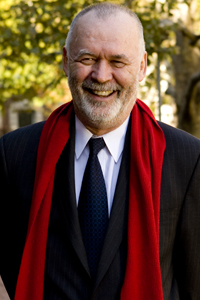 The Aspen Institute’s recently updated Beyond Grey Pinstripes, the list of top 100 top socially- and environmentally- conscious MBA programs, has generated a lot of interest in how business schools are (or are not) developing curriculum that will foster socially sustainable thinking. Fast Company recently interviewed Judy Samuelson, Aspen’s director of business and society, who said that, while b-schools are providing a more ethical and socially-conscious framework for students, in general, they’re still not leading. That may be true, but if anything, Beyond Grey Pinstripes shows that many business schools are starting to take the ideas of corporate social responsibility (CSR) seriously, and that many students are being exposed to this thinking throughout their MBA programs.
The Aspen Institute’s recently updated Beyond Grey Pinstripes, the list of top 100 top socially- and environmentally- conscious MBA programs, has generated a lot of interest in how business schools are (or are not) developing curriculum that will foster socially sustainable thinking. Fast Company recently interviewed Judy Samuelson, Aspen’s director of business and society, who said that, while b-schools are providing a more ethical and socially-conscious framework for students, in general, they’re still not leading. That may be true, but if anything, Beyond Grey Pinstripes shows that many business schools are starting to take the ideas of corporate social responsibility (CSR) seriously, and that many students are being exposed to this thinking throughout their MBA programs.
So, is this kind of thinking rubbing off on students?
A glance at some recent projects and startups created by MBA students and recent graduates shows that this new type of thinking is indeed having a positive effect, and may be influencing a new breed of businesses that are, through innovation and the adoption of traditional business principles, tackling social and environmental problems.


